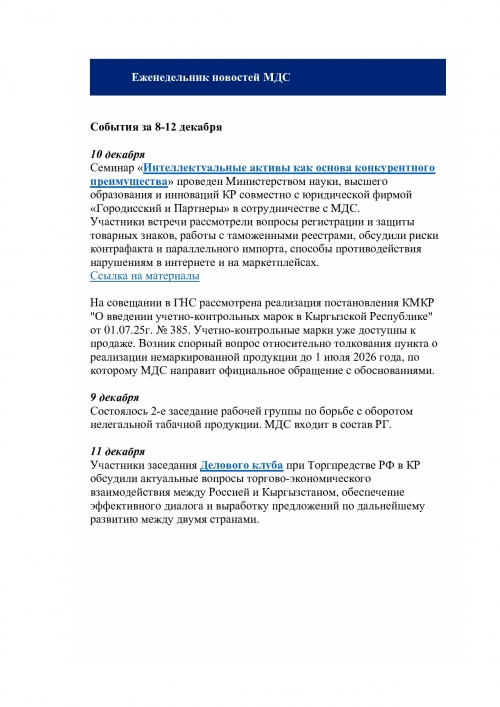Analysis /
Articles /
A week of investment deals between Japan and Central Asia

Japanese PM Abe has been busy this week, signing billions of dollars’ worth of deals with Turkmenistan, Kyrgyzstan and Uzbekistan, as the Japanese Mitsubishi UFJ Financial Group also signs a $1.5 billion loan agreement with the Kazakh National Welfare Fund. Meanwhile, Kazakhstan is considering imposing a fine of up to $2 billion on the BG-Eni joint venture in view of the companies’ failure to fulfil contractual obligations, and Kazakh President Nazarbayev’s visit to Qatar results in the creation of a joint venture between Kazatomprom and Qatar Solar Energy.
Kazakhstan plans to join OECD Investment Committee in 2016
Kazakhstan plans to enter the Investment Committee of the Organization for Economic Cooperation and Development (OECD) in the upcoming year. Yerlan Khairov, chairman of the Investment Committee of Kazakhstan's Ministry for Investments and Development, announced the news at Wednesday’s Kazakhstan-UAE business forum.
Japan and Turkmenistan sign chemicals and energy deals worth over $18 billion
Japan and Turkmenistan have signed deals worth over $18 billion covering a range of projects in the energy-rich Central Asian country, which has become an important supplier of natural gas to China.
In the presence of Turkmen President Kurbanguly Berdymukhamedov, Prime Minister Abe announced that: “We planned to sign documents on a number of projects in the chemicals sector and power station construction for a total sum of more than $18 billion. These documents have just been signed.”
Kazakhstan’s President invites Japanese companies to participate in privatisation of Kazakh companies
Speaking on Tuesday at the Kazakh-Japanese business forum held in Astana this week, President Nazarbayev made the following statement: “Kazakhstan is taking efforts to deregulate some of its industries. We are expecting a second unprecedented wave of privatisation and sales of key public assets. The list includes government-owned stakes in mining, O&G, transport, communications industries, as well as some infrastructure facilities. Participation of Japanese companies would be a great opportunity to galvanise the bilateral cooperation between the two nations.”
Japan invests $1 billion in Kyrgyzstan
Japan will invest roughly 130 billion yen (over $1 billion) in Kyrgyzstan’s most promising sectors under a number of documents covering grant aid for the development of small- and medium-sized businesses. The document was signed during Japanese Prime Minister Shinzo Abe’s recent visit to Kyrgyzstan.
This aid will include $16 million for the renovation of Manas International Airport in the Kyrgyz capital of Bishkek, $1.5 million to support the agricultural sector, and $117 million to restore the Osh-Batken-Isfana highway in the south.
When discussing potential sectors for investment, Abe highlighted promising areas such as Kyrgyzstan’s abundant water recourses, its traditional livestock and the dairy and agriculture sectors.
This meeting marks a historic development in the bilateral cooperation between the two countries as Abe is the first Japanese prime minister to have visited Kyrgyzstan.
Kazakhstan may impose $2 billion fine on BG-Eni venture
Kazakhstan’s government is considering levying a penalty on the Karachaganak gas project led by BG Group Plc and Eni SpA, which jointly operate the country’s second-biggest producing oil and gas field.
Kazakhstan is considering the possibility of imposing the fine, which may be as much as $2 billion, because the companies have failed to fulfil certain contractual obligations.
BG and Eni each own 29.25 percent of Karachaganak, which yields natural gas and a light oil called condensate. In addition, Chevron Corp. has 18 percent, OAO Lukoil has 13.5 percent and KazMunaiGaz has 10 percent.
Uzbekistan creating holding for cotton processing and export
Uzbek President Islam Karimov has issued a decree for the creation of a holding company named Uzpahtasanoateksport. The company will act as a single complex for receiving and processing raw cotton, as well as for exporting cotton fibre.
Under the president’s decree, made public on 28 October by central media outlets, the holding will include three specialised unions. These will include the Uzpahtasanoat, which will deal with the receipt and processing of raw cotton, the Uzpahtaeksport, which will store and export the cotton fibre, and the Uzpahtaeg, which will produce cottonseed oil.
The main objectives of the Uzpahtasanoateksport are to ensure a unified policy for the organisation and implementation of the full range of activities associated with the production and export of cotton, as well as to attract foreign investments for the modernisation and technical and technological re-equipment of the country’s cotton ginning and oil-fat producing enterprises.
Kazatomprom and Qatar Solar Energy set up joint venture
As part of Kazakh President Nursultan Nazarbayev’s official visit to Qatar earlier this week, the CEO of Kazakhstan’s national atomic company Kazatomprom, Askar Zhumagaliyev, and the CEO of Qatar Solar Energy, Saleem Abbasi, have signed a framework agreement for the establishment of a joint solar energy venture.
According to the agreement, Kazatomprom will become a strategic shareholder of Qatar Solar Energy and will be able to expand the production chain of solar panels from raw materials to electric energy production. The parties agreed to use high-quality Kazakh silicon to manufacture the solar panels.
Kazakh National Welfare Fund attracts loan worth $1.5 billion
The Samruk-Kazyna Kazakh National Welfare Fund has signed a five-year syndicated term loan facility worth $1.5 billion.
The Bank of Tokyo Mitsubishi UFJ Ltd., a member of the MUFG Group, was mandated as the sole coordinator, bookrunner and mandated lead arranger on the facility in this debut transaction for the borrower.
In addition to the Bank of Tokyo Mitsubishi UFJ, JP Morgan Chase Bank, N.A., Mizuho Bank, Ltd, Sumitomo Mitsui Banking Corporation, Credit Suisse AG and Deutsche Bank AG all joined this facility.
The initial loan is for $1 billion; however, the Samruk-Kazyna could increase this figure to a final total of $1.5 billion.
Japan and Uzbekistan sign deals worth more than $8.5 billion
Japan and Uzbekistan signed deals worth more than $8.5 billion on Sunday, which include investments in the exploration of new hydrocarbon reserves in the Central Asian country.
Japan will finance around $5 billion of those deals, which also cover communications and transport projects.
One of the projects will see Japan Oil, Gas and Metals National Corporation (JOGMEC) exploring new hydrocarbon reserves jointly with the Uzbek state oil and gas company Uzbekneftegaz.
Another project will focus on modernising a heating power plant generating electricity for the Uzbek capital Tashkent. Japanese firms will also build an ammonia and carbamide plant at Uzbek chemical company Navoiazot's site.
Source: http://us4.campaign-archive2.com/?u=d1e6f0d745e7feb80889ed4b2&id=9495f518ad&e=e494bf5ad2




























